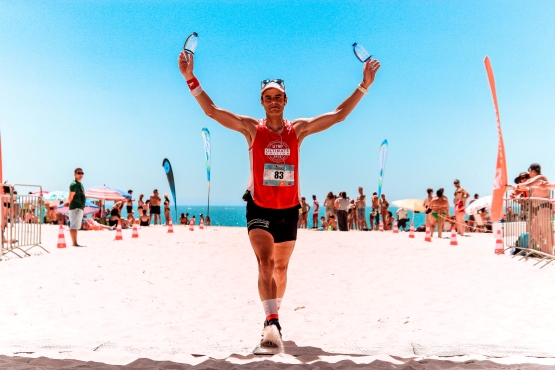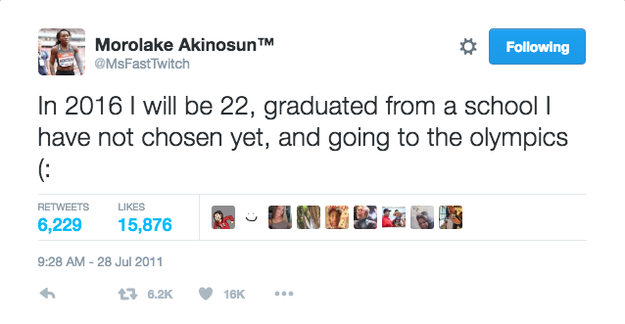
7 Lessons the Olympic Games Can Teach us About Writing
Who doesn’t love the Olympics?
Every four years, we get to see the best of the best of the best compete. The Olympics is so interesting, because the athletes have few chances to win medals in their lifetime.
In almost every other sport, you get a new season each year, but in the Olympics, it’s do or die. Lose and wait close to a half-decade for your next opportunity.
I’m always thinking of ways to tie in different areas of life with writing, so today I wanted to share some lessons we can learn from the world’s greatest athletes in the world’s greatest athletic showcase.
Love the work for the sake of the work
For every Michael Phelps, there are hundreds of Olympic athletes who don’t make sizable incomes. Olympic athletes train and compete for love of their sport. It’s why they’re so endearing.
There’s none of the pretentiousness you see with professional athletes. The Olympics represent sport in its purest form.
I want to make a full time living with my writing, but the dedication to the craft for the sake of the craft comes first.
Great writing can’t come from a place of pure selfishness. If you want to write solely for money or fame, don’t write. You won’t last long enough to succeed anyway.
Write for joy. Write to make a difference and get ideas you believe in to spread. Don’t write just so you can create a course or get a book deal.
People can tell if you’re being sincere or not.
Work, Work, Work
Imagine practicing your writing for four years before you publish your first book. That’s what it’s like to train for the Olympics.
Sure, there’s word championships in between, but reaching the podium is the holy grail Olympic athletes are really shooting for.
The medalists get there by incessant practice — shaving milliseconds of their start, jumping a half an inch higher, repeating routines until they’re woven into their muscle memory. Many of these athletes dedicate their entire existence to practice and do little else.
Imagine what your writing career would look like if you took the attitude of an Olympic athlete — stressing over each sentence, hacking away words that don’t push the conversation forward, editing the same page over and over until it’s just right.
Each time I feel like complaining about my lack of speedy success in writing, I remind myself how much practice and time it takes to master the craft.
I guarantee you can practice more than you are right now.
Make your effort match your aspirations.
Take Care of Your Body
Olympic athletes keep strict diets to keep their body in peak condition for competition. You can’t eat fast food 3 times a week and win a gold medal.
Sure, writers aren’t athletes, but the way we treat ourselves physically affects our performance too.
My colleague, Matt Hearnden, wrote an about the subject of health and writing. In it, he talked about ways he improved his writing such as:
- Getting more sleep
- Eating healthier
- Taking care of his mind — by saying no to things that were either stressful or unimportant.
Productivity and health are tied to one another.
Take great care of your body and mind to produce quality writing.
Pace Yourself
I watched the cycling road race the other day. The ending fascinated me. American cyclist, Mara Abbot, was leading the race for the duration of it after another cyclist crashed her bike on the road.
She created a healthy lead, and it looked like she was going to win the race. There were three cyclists behind her, and in the final seconds of the race, all three of them passed her on the way to the finish line. The race was more than 100 mile long.
The cyclists appeared to be working together until the final stretch, where they engaged in a free-for-all to the finish. Abbot, who was poised for victory, seemed to run out of gas right when she needed it most.
The cyclists who won medals were patient and conserved their energy before making the final push.
To be a successful writer you need to work hard and practice, but the most important trait a writer can have is patience. Building a writing career is a marathon, and most writers burn themselves out (way) before they succeed.
Multiply the length of time you think it will take to succeed as a writer times ten. It’s hard.
I haven’t yet mastered patience, but I keep writing, because I know there’s no other way. I have to remind myself to stay steady and avoid burning out — every.single.day.
Believe in Yourself

Track and Field athlete, Morolake Akinosun, wrote a tweet five years ago declaring she’d make the Olympic team. She made it.
She worked hard to reach her goal, of course, but creating a vision for her future contributed to her success.
Visualization often takes on a “woo woo,” context, which isn’t helpful. “The Secret,” is bullshit.
On the other hand, visualization coupled with actual work can and will help you reach your writing goals.
It’s so difficult to see yourself in a place of success when you’re nowhere near reaching it. Mastering your mindset is just as important, if not more, as mastering the craft.
Who are you to become a talented writer? Who are you not to be.
On the road to reaching your writing dreams you will want to quit — dozens if not hundreds of times. Create a strong vision for your future to keep you from throwing in the towel.
I have a vision for my future, where I spend my entire day reading, writing, and sharing. I hold onto that vision, because I’m in the trenches — practicing, learning, and trying to get people to care.
It’s what keeps me going when I don’t feel like doing the work.
Get a Coach
There a stigma around coaching and online training for writers and marketers, but successful athletes all use coaches and trainers.
Some people scoff at hiring a coach or taking a course because they think it’s just as easy to find helpful information online for free.
This comes from a scarcity mindset.
Many of us think we’re above getting help. Why?
Are we so gifted that we can’t benefit from training or coaching?
Do we know something the world’s most successful people who use coaches don’t?
I took a publishing course to help me write and market my first book. I profited from investing in my education and the course helped me accomplish something I never would have done on my own. I’ve paid for membership websites to help me improve my craft on a regular basis.
You can spend endless hours, months, maybe even years of your life trying to figure everything out on your own, or you could get help.
Olympic athletes work with the best trainers.
Internet marketing draws its share of seedy characters, but there are coaches and training programs with honest intentions to help you.
You’re smart. Do your due diligence, and invest in yourself.
Compete With Yourself Only
I like the fact that the Olympics includes so many individual sports. Individual athletes compete with themselves.
In sports like swimming and track and field, you aren’t trying to penetrate your opponents defense.
You’re just doing the best you can, and the best wins. It’s pure.
Writers are the same way.
You can compare yourself to other writers all you want, but you’re not in competition with them. People buy books from multiple authors in the same genre and read blogs by multiple writers in the same niche.
You’re the solitary athlete. You train constantly to prepare for your next big shot. Each blog post or book you write is an attempt at reaching your “personal record,” for quality, craftsmanship, and excellence.
If you look in the other lanes during the race, it’ll slow you down.
Keep your eyes forward and run to the finish line.
When you watch the games this week, think of the dedication, time, and energy these athletes put into preparing for their events.
Think of the mindset it takes to train four years for a race that lasts ten seconds.
If you work even half as hard as an Olympic athlete, you’ll make it as a writer.